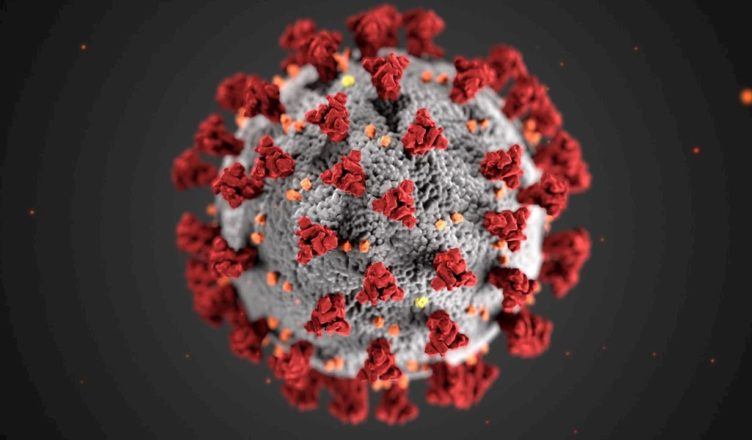As you’ve probably heard by now, the US Congress has recently passed the CARES Act, a $2 trillion federal stimulus package designed to help the economy recover from the threat posed by the Coronavirus (COVID-19). Among other provisions in the bill, the law provides some substantial relief for federal student loan borrowers. This includes:
- Not requiring payment on any federal student loan until September 30, 2020
- Waiving student loan interest until September 30, 2020
- Suspending collection of defaulted federal student loans
- Cancelling Direct Loans for borrowers who were forced to withdraw from school due to the pandemic
Important Note: These benefits are only available to borrowers of federal student loans. If you have borrowed private student loans, you are still required to make your regularly-scheduled monthly payments. If you have lost your job due to the pandemic, immediately reach out to your lender and explain your situation, and ask them what options you have available to you. They may be willing to suspend payments for a limited period of time.
All of these provisions are pretty straightforward, but the first one on the list—the suspension of monthly student loan payments—raises an important question: Should you really stop making payments as offered under the CARES Act? Or should you continue making payments for as long as possible?
Need help keeping track of your student loans? Download our free Student Loan Spreadsheet!
Should You Really Stop Making Your Student Loan Payments Under the Provisions of the CARES Act?
Unfortunately, there is no single answer to that question that will apply to every borrower. Each and every one of us should take our own unique financial situation into consideration when deciding whether or not to suspend student loan payments under the CARES Act. That being said, below are a few helpful ways of thinking about your options, based on your employment status and your current level of savings.
If you’ve lost your job and have no savings…
If you’ve lost your job during the pandemic and have little-to-no emergency savings, then you’re likely in a tough spot. Any unemployment benefits that you receive, you will likely need to pay for other essential expenses, like rent, utilities, food, etc.
In this case, it is likely a good idea for you to forgo making your student loan payments under the CARES Act. You should use your unemployment benefits and any benefits (such as the $1,200 check that the federal government is sending to most workers) to first cover your immediate expenses.
If you have anything extra left over after those expenses are paid, use that money to build an emergency fund so that you have a buffer in the future. Download this emergency fund calculator to figure out how much money you should eventually aim to save.
If you’ve lost your job and have substantial savings…
If you’ve lost your job during the pandemic but have substantial savings to help you get by, first of all: Good for you! You should still aim to apply for unemployment benefits as soon as possible, and consider saving the $1,200 check that the government sends you, because this pandemic may last anywhere from three to six months.
If you are already confident that you have enough in savings to get you through three to six months without a job, then making your regularly scheduled student loan payments can be a smart decision.
Because interest is not accruing during the payment suspension period, that means that any payments you do make will be applied completely towards your principal. This can help you pay off your student loans faster and more cheaply than if you do not make payments during this time.
Again, though, your first aim should be making sure that you meet your other obligations and that you have enough in savings to help you get through this time of upheaval.
If you’re still working, but don’t have any savings…
If you’ve been able to switch to remote work or have otherwise managed to keep your job, that’s great: You’ve got a source of income to help you get through the pandemic.
But if you don’t have any emergency savings, then it’s probably a good idea for you to forgo making your student loan payments so that you can bolster your savings. If the economy continues to worsen, and the number of confirmed cases continue to rise, it is very possible (and likely) that more people will lose their jobs. Having some money set aside for emergencies should be your first priority.
With this in mind, you may want to use the money that would normally go towards paying your federal student loans to build an emergency fund so that you have a buffer in the future. Download this emergency fund calculator to figure out how much money you should eventually aim to save.
Once you are confident that you have enough money set aside to get you through the worst of the pandemic, you may then decide to continue making your payments to realize some interest savings.
If you’re still working and have substantial savings…
If you’re still working a stable job and have no fear of being laid off, and you’ve got three to six months’ worth of expenses set aside in case of emergencies, then continuing to make your student loan payments as regularly scheduled can be a smart decision. Doing so may help you shave hundreds or even thousands of dollars off of your principal, since interest is not accruing while payments are suspended, further saving you time and money over the life of your loan.
That being said, you may have other financial goals competing for you cash at this time. For example, you may decide that you want to begin investing now, while the market is at a discount, so that when the economy recovers you can make a gain.
You can certainly consider that alternative use for your money, but remember: Paying off your debt equals a guaranteed return on your money, while investing always carries risk. Investing intelligently is a smart part of any financial plan, but is not something that should be done blindly. Make sure you evaluate all of your options before getting started, and understand how much risk you’re willing to take on.
The Bottom Line
Whether or not you choose to stop making your federal student loan payments as allowed under the CARES Act will, ultimately, depend on your own unique financial situation. The guide above can help you prioritize how you spend your money during this time but is, ultimately, just a suggestion. Think about your financial goals, aspirations, and the risks you are willing to take before making any decision.
Whether you decide to stop making payments or continue making payments as usual, this pandemic highlights the importance of making sure that you’re keeping track of your student loans. Download our free spreadsheet (below) so that you don’t lose track of your student loan repayment!






